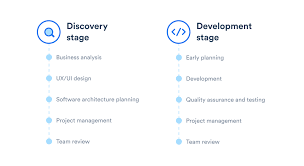Empowering Success: Harnessing the Potential of Tech Solutions
The Power of Tech Solutions in Today’s World
Technology has become an integral part of our daily lives, transforming the way we work, communicate, and live. In this fast-paced digital age, businesses and individuals are constantly seeking innovative tech solutions to streamline processes, enhance productivity, and stay ahead of the competition.
Benefits of Tech Solutions
Implementing tech solutions offers a myriad of benefits across various sectors:
- Increased Efficiency: Automation and digital tools help streamline operations, saving time and resources.
- Enhanced Communication: Collaboration platforms and communication tools facilitate seamless interaction among team members, regardless of location.
- Data Security: Robust cybersecurity solutions protect sensitive information from cyber threats and breaches.
- Better Decision-Making: Data analytics tools provide valuable insights that enable informed decision-making for businesses.
- Improved Customer Experience: Personalized services and efficient customer support systems enhance overall satisfaction.
The Role of Tech Solutions in Business Growth
In the competitive business landscape, leveraging tech solutions is crucial for driving growth and staying relevant. Companies that embrace digital transformation are better positioned to adapt to market changes, meet customer demands, and innovate effectively.
Future Trends in Tech Solutions
The rapid evolution of technology continues to shape the future of tech solutions. Emerging trends such as artificial intelligence, Internet of Things (IoT), cloud computing, and blockchain are revolutionizing industries across the globe. These cutting-edge technologies offer limitless possibilities for businesses seeking to optimize their operations and deliver exceptional value to customers.
In conclusion, tech solutions play a pivotal role in shaping our modern world. By embracing innovation and harnessing the power of technology, businesses can unlock new opportunities for growth, efficiency, and success in today’s dynamic environment.
5 Essential Tech Tips to Enhance Your Digital Security and Protect Your Data
- Regularly update your software and applications to ensure security patches are in place.
- Backup your data frequently to prevent loss in case of hardware failure or cyber attacks.
- Use strong, unique passwords for each account and consider using a password manager.
- Enable two-factor authentication whenever possible to add an extra layer of security.
- Be cautious when clicking on links or downloading attachments from unknown sources to avoid malware infections.
Regularly update your software and applications to ensure security patches are in place.
Regularly updating your software and applications is a crucial step in maintaining the security of your digital environment. By staying current with updates, you ensure that security patches are in place to address vulnerabilities and protect your systems from potential cyber threats. Neglecting to update can leave your devices and data exposed to malicious attacks, making it essential to prioritize regular software maintenance as part of your cybersecurity strategy.
Backup your data frequently to prevent loss in case of hardware failure or cyber attacks.
It is essential to regularly back up your data to safeguard against potential loss due to hardware failures or cyber attacks. By maintaining up-to-date backups of your important files and information, you can mitigate the risks associated with unexpected events and ensure that your data remains secure and accessible when needed. Taking proactive measures to protect your data through regular backups is a fundamental aspect of maintaining a resilient and reliable digital infrastructure.
Use strong, unique passwords for each account and consider using a password manager.
In the realm of tech solutions, a crucial tip for safeguarding your online accounts is to utilize strong and unique passwords for each account. By creating complex passwords that are different for every platform, you significantly enhance the security of your sensitive information. Additionally, considering the use of a password manager can simplify the management of multiple passwords while ensuring they are securely stored. This proactive approach not only mitigates the risk of unauthorized access but also provides peace of mind in an increasingly interconnected digital world.
Enable two-factor authentication whenever possible to add an extra layer of security.
Enabling two-factor authentication whenever possible is a highly recommended tip in tech solutions to enhance security measures. By requiring users to provide two forms of verification before accessing an account or system, such as a password and a unique code sent to their mobile device, two-factor authentication adds an extra layer of protection against unauthorized access and potential cyber threats. This simple yet effective security measure significantly reduces the risk of data breaches and enhances overall cybersecurity posture, making it a valuable practice for safeguarding sensitive information in today’s digital landscape.
Be cautious when clicking on links or downloading attachments from unknown sources to avoid malware infections.
In the realm of tech solutions, it is crucial to exercise caution when interacting with unfamiliar sources online. One key tip to safeguard against potential cybersecurity threats is to be wary of clicking on links or downloading attachments from unknown sources. By remaining vigilant and avoiding such risky actions, individuals and businesses can mitigate the risk of malware infections that could compromise sensitive data and disrupt operations. Prioritizing cybersecurity best practices like this can help maintain a secure digital environment and protect against cyber threats in today’s interconnected world.








